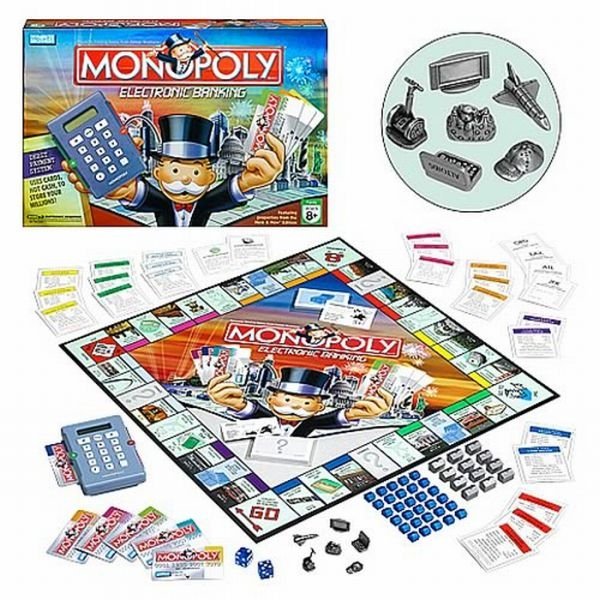|
|
Monopoly
|
By the 1970s, the game's early history had been lost (at least one historian has argued that it was purposely suppressed), and the idea that it had been created solely by Charles Darrow had become popular folklore. This was stated in the 1974 book The Monopoly Book: Strategy and Tactics of the World's Most Popular Game, by Maxine Brady, and even in the instructions of the game itself. As Professor Ralph Anspach fought Parker Brothers and its then parent company, General Mills, over the trademarks of the Monopoly board game, much of the early history of the game was "rediscovered".
Because of the lengthy court process, and appeals, the legal status of Parker Brothers' trademarks on the game was not settled until the late 1970s. Anspach won the case on appeals in 1979, as the 9th District Court determined that the trademark "Monopoly" was generic, and therefore unenforceable. However, on Hasbro's pressure, the US Congress immediately passed a statute amending the Trademark Act to protect longstanding marks against 'generic' claims. Thus the game's name remains a registered trademark of Parker Brothers, as do its specific design elements. Parker Brothers' current corporate parent, Hasbro, again acknowledges only the role of Charles Darrow in the creation of the game. Anspach published a book about his research, called The Billion Dollar Monopoly Swindle (and republished as Monopolygate), in which he makes his case about the purposeful suppression of the game's early history and development.
In the US version the eight pawns/pieces are: dog, top hat, wheel barrow, race car, boot, iron, battleship, thimble, and formerly used to also include the cannon, horse and rider and bag of money. One piece: the train, appears in Deluxe versions only. The original version was sold by Charles Darrow, and later by Parker Brothers. The board consists of forty spaces containing twenty-eight properties (twenty-two colored Streets, four railroads and two utilities), three Chance spaces, three Community Chest spaces, a Luxury Tax space, an Income Tax space, and the four corner squares: GO, Jail, Free Parking, and Go to Jail. In the U.S. versions, the properties are named after locations in (or near) Atlantic City, New Jersey.
|
|









